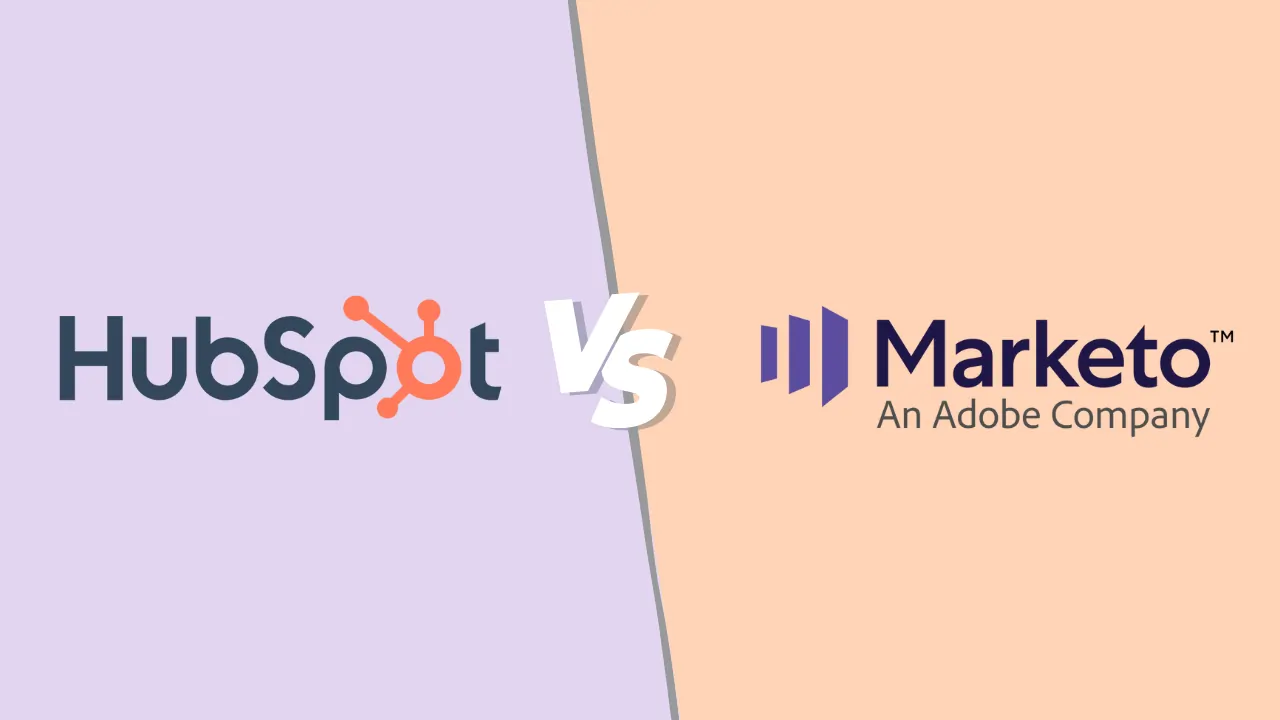Maximize Your Online Presence: The Power Of Content Marketing In Driving Business Growth

Today’s consumers demand information, education, and entertainment. Content has become the lifeblood of visibility. Search engines and social media algorithms are realizing that.
That’s why companies use copywriting frameworks, email marketing tools, website builders, e-commerce platforms, etc, to fast-track their content creation process—without compromising quality. Let’s explore how content marketing can help you win in 2024.
The Importance Of Content Marketing
Why would people buy from you if they’re not aware of who you are and what you offer?
Your customers should trust you—deeming you credible and capable enough to solve their problem. Your content is the first thing they see. That’s why content marketing allows for brand awareness and credibility. Let’s explore strategies that can turn your potential customers into satisfied clients.
Blogs
Even with a low attention span, 77% of internet users still read blogs. Thus, publishing informative and engaging blogs can establish you as a thought leader. Address your audience’s problems and pain points, then provide solutions and insights.
Videos
92.3% of internet users worldwide watch digital videos on a weekly basis. Showcase your products or services and share customer testimonials with visual appeal. Many brands create behind-the-scenes glimpses to connect with their audience like a human. Leverage this tool to captivate your audience.
Infographics
Infographics can increase website traffic by up to 12%. They’re amazing and have a high dwell time. You can use these to summarize key statistics, illustrate data, and share quick takeaways.
E-books and White Papers
The use of e-books for digital marketing is anticipated to continue increasing. A rough estimate suggests a 9% growth—making it 92.9 million active users. Provide valuable resources, industry reports, or practical guides to showcase expertise and develop trust. And in turn – bring more leads.
Effectively Present Your Content Through A Website Builder
Creating quality content is great. But it’s not worth much if it doesn’t reach your audience. Let’s explore how having a website builder can help your content reach your ICP (Ideal Customer Profile) on social media, emails, and search engines.
The Importance Of Website Builder
A website builder lets you create and edit websites without coding knowledge. It usually offers a drag-and-drop interface and templates to simplify the website development process. Popular website builders include Shopify, Squarespace, and Wix.
How To Choose The Right Website Builder?
Choosing the right builder is necessary to make your website visually appealing and ensure your content lands perfectly. When selecting one, prioritize features that align with your content presentation needs.
Consider factors like:
Visual Appeal
You can choose a builder that offers pre-designed templates and intuitive design tools. This gives you more space for customization. For example, Squarespace comes with beautiful, modern themes and drag-and-drop functionality. That’s why countless businesses choose it every day.
Content Integration
Before choosing a website builder, make sure to check what content formats can be integrated. Select a builder that offers dedicated sections or plugins for blogs, videos, and other media. Squarespace is a good choice as it allows you to embed videos directly on your homepage. Also, you can create dedicated blog pages for SEO-optimized content pieces.
SEO Optimization
Select a builder that is SEO-friendly. Look for features like meta descriptions, image alt text, and mobile responsiveness. For example, Squarespace takes care of these technical aspects, such as optimizing content with headings, sitemaps, customized titles, alt text, and structured data.
How To Integrate Content Into Website Design
Once you’ve selected the builder, strategically integrate your content into your website for increased engagement. Make sure you have a responsive website design. Here are some tips:
- Blogs: Utilize a dedicated blog page to publish SE-optimized articles regularly.
- Videos: Showcase product demos, customer testimonials, or explainer videos for your audience.
- Images: Use high-quality images on your website to break up text and add visual appeal to your content.
- Interactive Elements: Add interactive elements like quizzes, polls, or surveys to increase dwell time.
- Mobile Optimization: Ensure your website looks stunning and functions smoothly on all devices, including mobile phones and tablets.
Expand Your Reach Through Email Marketing
Email marketing is a powerful tool for content creators and businesses. It can land you straight to your ICP’s inbox. By integrating email marketing into your content marketing efforts, you can enjoy many benefits, including:
Amplified Reach and Engagement
You can promote your content (blogs, articles, videos) directly to everyone who subscribed to your email list. This, of course, expands your reach greatly. Moreover, tools like Mailchimp and Constant Contact offer drag-and-drop email builders to craft visually appealing newsletters.
You can also include your social media sharing buttons within emails to bring them out of their inbox and into your community. Use HubSpot or MailerLite for this.
Building Brand Trust and Loyalty
An email marketing campaign can help you build a degree of trust and customer loyalty. It helps you segment your audience based on their preferences. This allows you to have a personalized communication with them.
Also, you can offer exclusive discounts and early access—creating subscriber-only content. Use Sender or ActiveCampaign to help you out. Send regular newsletters, industry updates, or even birthday greetings to stay in touch with your audience and build profitable relationships.
Driving Retention and Return Sales
You can send a personalized welcome email sequence to new subscribers. This could create a funnel introducing them to your brand, products, and values.
Revive inactive subscribers with targeted email campaigns offering special discounts or personalized recommendations to bring them back to you. This is invaluable for customer retention.
Leverage Influencer Marketing and Collaborations
People want a personalized connection with the entity they’re doing business with. That’s why influencer marketing is a powerful tool for making a humanized connection with your customers. 60% of marketers agree that influencer-made content performs better than branded content. Here’s how different types of influencers align with audience segments:
Micro-Influencers
Micro-influencers have a small yet highly responsive following (typically 10k-50k).
Mid-Tier Influencers
Mid-tier influencers have a follower count of around 50k-250k, with a relatively broader reach.
Macro-Influencers
Macro-influencers are viral sensations (250k+ followers), commanding a considerable reach and brand awareness.
Share Your Content Across Social Media
Around 4.9 billion souls use social media globally. Hence, you can achieve an insane reach and engagement for your content from diverse audiences. Here’s how you can capitalize on social media for your content marketing:
- Platform Selection: Understand where your target audience spends their social media time, as different platforms facilitate specific demographics and interests.
- Content Adaptation: Repurposing your content for different platforms makes it connect with the audience you’re looking for.
- Engagement: Engage in comments and messages promptly, answer questions, and participate in discussions.
- Integrations: Connect your social media with other marketing channels to hit everything simultaneously.
- Video Marketing Integration: Create short, informative, and entertaining videos, optimizing your titles and descriptions for search and using hashtags.
- Analytics: Use insights to improve your content strategy, tweak your posting schedule, and identify the platforms that offer the best ROI.
Additional Content Distribution Methods
To tap into people who don’t use mainstream mediums to seek information, you can distribute your content differently. Here are some other avenues you can consider while developing your content distribution strategy.
- Podcasts: You can host your industry-focused podcast and launch an audio series to push your brand.
- Webinars: You can use webinars to showcase your expertise and generate leads with real-time engagement.
- Online Forums: You can engage in discussions and come out as a thought leader in your industry.
Personalize Your Content Marketing with CRM
Content personalization isn’t a premium feature that you offer to selected customers. It’s now something that everyone expects. Thus, there’s a need for storing, organizing, and sorting customer data.
CRMs can help you gain valuable insights into individual customer behavior, preferences, and purchase history—ultimately increasing your customer retention by developing trust.
For example, consider a customer who recently purchased a running watch from your online store. It’s only natural that they might be interested in other complementary accessories. For example, heart rate monitors or running shoes. A CRM can help you display personalized product recommendations based on past purchases.
Also, CRMs work best with your email marketing strategy. You can send targeted email campaigns based on your customer’s past purchase history. This personalization helps you develop a stronger bond with your clients.
Optimize Your Visibility Further with SEO
89% of customers start their buying journey with a search engine. Optimize your website from a people-first approach so that search engines display you on high-ranking pages.
There are three basic components of SEO that you have to focus on. Let’s look at each in detail and see how a holistic effort can benefit your brand:
On-Page SEO
On-page SEO relates to optimizing your webpage to help the search engine understand what the page is about and how it satisfies the user’s query. This involves optimizing your metadata, like titles, headings, and content, with keyword incorporation. Do it naturally while creating SEO-friendly content.
Off-Page SEO
Off-page SEO involves reaching relevant websites to link your web pages. You can utilize guest blogging, forum posting, social shares, and collaborations. This increases your domain authority and content visibility.
Technical SEO
Make sure that your website loads quickly and perfectly on all devices. Optimize your source code and remove any bugs and technical errors. Your website should be focused on mobile-first, as most of your visitors will likely use a mobile to land on your site.
Ensuring Authenticity In Your Content Strategy
Nobody will buy from you if they don’t trust you. Countless brands are pushing content that shows them as the best in the market. Here are some best practices to show your audience you’re authentic:
Leverage Real Customer Experiences
You can feature genuine stories from real customers – showing their challenges, successes, and emotional journeys. Don’t shy away completely from negative experiences; address them honestly and show how you improved based on feedback.
Create UGC Campaigns
The best way to market yourself is to let your customers market you. UGC, or user-generated content, can be immensely helpful for your brand. Create interactive contests and challenges, unique brand hashtags and trends, or host a livestream with Q&A sessions. Let your users participate in the content creation process and bring you growth. This is key in showing authenticity.
Implement a Content Moderation Strategy
You should have a solid content moderation strategy in place to restrict unhelpful content and refine helpful content. This is especially true for comments from users. For that, you can create pre-defined guidelines for acceptable language, content, or brand tone. Also, your moderation process should be very clear, diverse, and transparent. You don’t want to silence genuine user voices.
Measure The Success Of Your Content Marketing
A detailed data-driven analysis can help you understand your content performance by looking at impressions, clicks, or subscriptions. Here are the key metrics you can use to track while looking at content across different channels:
- Content Performance: Check for your website traffic, engagement, content shares, social media engagement, lead generation, and overall conversions.
- Email Campaigns: Look at your open rates and click-through rates, unsubscribe rates, and overall conversion rates of the campaign using MailerLite or Mailjet.
- Website Engagement: Check if your website is engaging enough for your ideal visitor. Evaluate your heatmaps, scrollmaps, and form abandonment rates.
Summing It Up
Content, email, distribution channels, and website builder platforms work synergistically to make your digital marketing strategy a win. You must hit all fronts at the right time and with the right intensity. Adopt a holistic digital marketing approach by leveraging these interconnected strategies for maximum impact.
Frequently Asked Questions
Q: What do you mean by content marketing?
A: Content marketing is the process of creating and distributing engaging content online.
Q: How can content marketing bring leads and sales?
A: Helpful content attracts interested audiences and solves their problems. The idea is to pull them into the buying journey as they discover your market offerings and make a purchase.
Q: Does content marketing really work?
A: Yes. Content marketing, if done strategically, can bring you impressions, engagements, leads, and revenue—at the same time building your credibility and trust.






